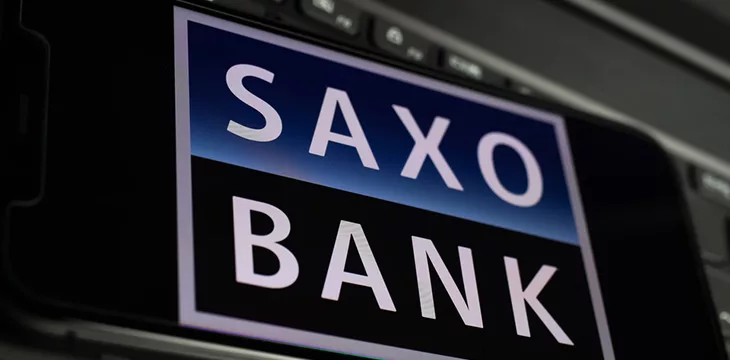|
Getting your Trinity Audio player ready...
|
Denmark-based Saxo Bank has been ordered to dispose of its digital assets by the Danish Financial Supervisory Authority (DFSA) for operating outside the confines of regulations.
In a terse warning, the DFSA noted that Saxo Bank’s decision to accumulate a portfolio of digital assets to offset market risks is a breach of the local financial rules. The investment bank has been offering exchange-traded funds (ETFs) and Exchange Traded Notes (ETNs) to customers tracking the movement of certain digital assets.
While banks are allowed to take necessary steps to hedge against market risks, the DFSA claims the Financial Business Act does not provide for using digital assets as a hedge.
“Annex 1 of the Financial Business Act is an exhaustive list of activities which are clearly covered by the legal business area of financial institutions,” read the notice. “Trading in crypto-assets does not appear in Annex 1 of the Financial Business Act.”
Although Danish laws are silent on the matter, the European Union’s Markets for Crypto Assets (MiCA) gives the green light for financial institutions to hedge their assets with virtual currencies. However, the DFSA notes that the MiCA rules are not expected to come into effect until the tail end of 2024, noting that the issue “remains unregulated for the time being.”
In a public statement, Saxo Bank remarked that it will consider the regulator’s position in the coming days before issuing a response. The investment bank clarified regardless of the outcome, customers will still be allowed to trade digital asset offerings.
“The vast majority of this exposure is mitigated through exchange-traded and cleared products,” said Saxo Bank. “Therefore, the FSA’s decision will have a very limited impact on our business, and our customers will not experience any significant changes.”
Despite its position, a cross-section of industry participants argues that the DFSA lacks the authority to regulate virtual currencies in the mold of BTC because they do not fall under the financial services category.
Banks are pivoting toward digital assets
Once considered a niche asset class, digital assets are now mainstream, with the largest investment banks in the world jostling for a piece of the pie.
JPMorgan (NASDAQ: JPM) waded into the ecosystem through its digital asset arm Onyx back in 2020, designed to be the “world’s first bank-led blockchain platform for the exchange of value, information, and digital assets.”
Since JPMorgan’s foray, other lenders have followed the same path, including HSBC (NASDAQ: HSBC), BNY Mellon (NASDAQ: BK), and Citi (NASDAQ: C), opting to explore different offerings in the space for their customers.
Watch: Blockchain and banking

 07-15-2025
07-15-2025 





